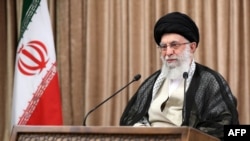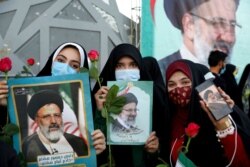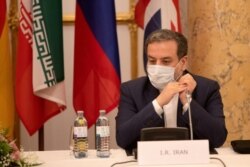U.S. National Security Advisor Jake Sullivan on Sunday downplayed the importance of the election of hardliner Ebrahim Raisi as the new Iranian president, saying that whether the United States ultimately rejoins the international pact to restrain Tehran’s nuclear program will depend on decisions made by Supreme Leader Ayatollah Ali Khamenei.
Raisi will replace more moderate Hassan Rouhani in six weeks, but Sullivan told ABC News’s “This Week” show that no matter who the Iranian president is, “It is less relevant than whether their entire system is prepared to make verifiable commitments” to abandon the possibility of Iranian development of a nuclear weapon.
Along with five other world powers, the United States is engaged in talks with Iran to rejoin the 2015 international agreement to restrain Tehran’s nuclear program that former U.S. President Donald Trump withdrew from, saying it was not tough enough. Trump reimposed economic sanctions against Tehran that had been dropped.
The pact was negotiated under Trump’s immediate predecessor, President Barack Obama, with U.S. President Joe Biden, who was Obama’s vice president, now looking to rejoin the agreement.
Negotiators for Iran and the other six countries were set Sunday to adjourn the talks to return to their respective capitals for further consultations on difficult remaining considerations.
Iran delegation chief Abbas Araqchi said, “We are now closer than ever to an agreement but the distance that exists between us and an agreement remains and bridging it is not an easy job," a position echoed by Sullivan.
“There is still a fair distance to travel on some of the key issues,” such as sanctions on Iran and the commitments Tehran is willing to make, Sullivan said.
“But the arrow has been pointed in the right direction,” he said. “We’ll see if Iran will make the hard choices they have to make.”
“The ultimate decision lies with the supreme leader, whether he follows the path of diplomacy or faces mounting pressure not just from the U.S. but from the international community,” Sullivan said.
“We believe diplomacy is the best way achieve that,” he said. Sullivan said the U.S. is “clear-eyed and firm” in its effort that “puts their nuclear program in a box.”
In a separate interview, Sullivan told “Fox News Sunday” that any new agreement could last for a longer time than the original 2030 expiration.
It is not clear, however, when formal international negotiations might resume.






